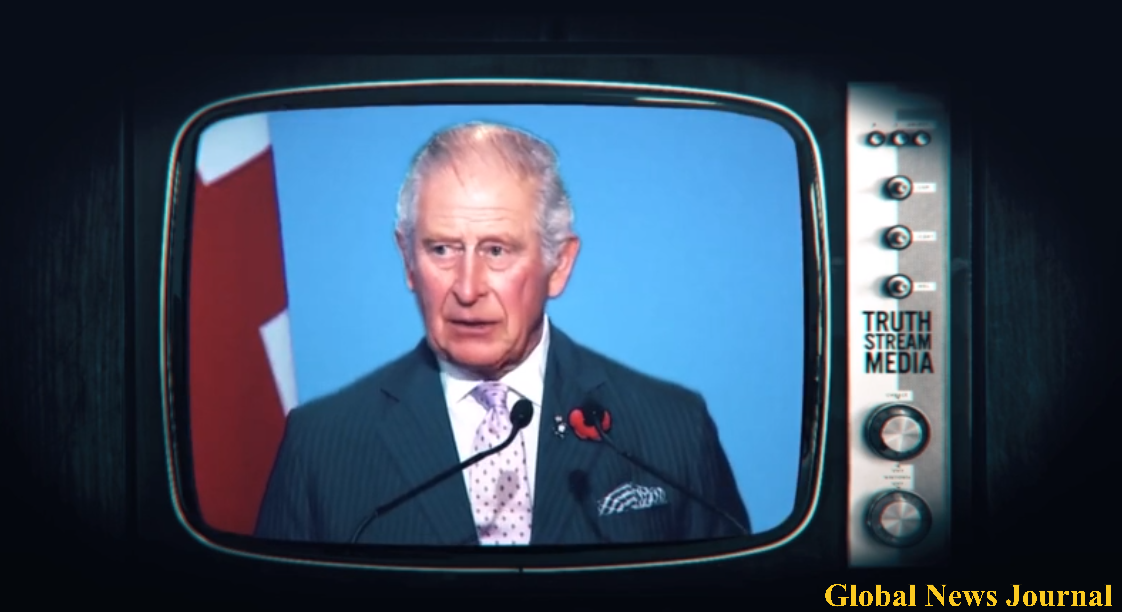Trump Rejects Pompeo and Haley for Future Cabinet: A Pledge to America First!
Ready to uncover the truth? Sick of the lies? Join our Telegram Channel now. It’s time for the real story! My gratitude to all my readers!
Trump excludes Mike Pompeo and Nikki Haley from his second administration, signaling a move away from neoconservative influence to reinforce an “America First” agenda.
In a sweeping, unambiguous declaration, former President Donald Trump announced that key figures from his previous administration, former Secretary of State Mike Pompeo and former UN Ambassador Nikki Haley, will not be part of his team if he secures a second term in the White House. This development signifies a major shift in Trump’s approach, signaling that the influence of neoconservative ideologies will be minimized as he shapes his prospective cabinet. This article delves into the implications, strategic motives, and potential effects of this announcement.
Trump’s Unwavering Stance on Loyalty and Vision
Donald Trump’s decision to exclude Mike Pompeo and Nikki Haley from his envisioned second administration has sent shockwaves through political circles and energized his core base. By decisively severing ties with these prominent figures, Trump underscores his commitment to an “America First” strategy, distancing himself from the more hawkish foreign policy that once found a place in his administration.
Pompeo’s Fall from Grace: From Loyalist to Persona Non Grata
Mike Pompeo’s tenure as CIA Director and later as Secretary of State was marked by his fierce dedication and alignment with many of Trump’s policies. However, the post-administration period revealed a significant divergence between the two men. Pompeo’s endorsement of the FBI’s raid on Mar-a-Lago—a deeply controversial and unprecedented move—drew severe criticism from Trump supporters.
This endorsement was seen as a betrayal by many in Trump’s camp. The FBI’s search and the ensuing legal battles around classified documents placed Trump in the crosshairs of the Department of Justice and special counsel Jack Smith. Pompeo’s implicit support for these actions raised questions about his loyalty and long-term commitment to Trump’s vision.
The Shadow of Julian Assange and Pompeo’s Controversial Moves
A particularly contentious chapter in Pompeo’s career was his stance on WikiLeaks founder Julian Assange. During his time as CIA Director, reports emerged that Pompeo had pushed for a covert plan to potentially assassinate Assange. This move, steeped in secrecy, was criticized as an overreach and an affront to the values of transparency and freedom of the press.
Assange’s prolonged ordeal—years trapped in the Ecuadorian Embassy and subsequent imprisonment in the UK’s Belmarsh prison—culminated in his release in June. The renewed discourse around Assange’s treatment served as a stark reminder of Pompeo’s aggressive policies, policies that many of Trump’s supporters believe contradict the ethos of defending whistleblowers and challenging entrenched government power.
Haley’s Rift with Trump: A Fractured Alliance
Nikki Haley’s fall from Trump’s graces was less abrupt but equally significant. During her tenure as UN Ambassador, Haley often voiced strong support for Trump’s foreign policies. However, her post-administration trajectory diverged notably. Haley’s criticism of Trump, especially during the GOP primary and leading up to the 2024 election, showcased a political ambition that was viewed as disloyal by Trump’s fervent supporters.
The final blow came when Trump dismissed speculation about her potential return to his administration in May. His public declaration that Haley was not under consideration for the vice-presidential slot and his “wish her well” remark underscored the definitive end of their political partnership. This statement effectively cemented Haley’s position as an outsider looking in, rather than a trusted ally ready to support Trump’s renewed vision for leadership.
Trump’s Statement on Truth Social: A Direct Message to the Base
Trump’s use of his own platform, Truth Social, to make this announcement is both strategic and symbolic. By opting for this method, Trump not only bypasses mainstream media filters but also speaks directly to his dedicated followers. His statement, punctuated with “MAKE AMERICA GREAT AGAIN,” reinforced his commitment to an unwavering, nationalist agenda.
The statement read: “I will not be inviting former Ambassador Nikki Haley, or former Secretary of State Mike Pompeo, to join the Trump Administration, which is currently in formation. I very much enjoyed and appreciated working with them previously, and would like to thank them for their service to our Country. MAKE AMERICA GREAT AGAIN!”
This public declaration acts as a line in the sand, showcasing Trump’s resolve to maintain a tight circle of allies who are fully aligned with his vision and values.
Reaction from Trump’s Base: A Collective Sigh of Relief
Trump’s loyal supporters have not shied away from expressing their approval of this move. The exclusion of Pompeo and Haley, both seen as symbols of neoconservative influence, was celebrated as a return to the core principles of Trump’s 2016 campaign: anti-interventionism, a skepticism of entrenched political elites, and a focus on domestic strength over foreign entanglements.
This action is more than just a reshuffling of political figures—it signals a deeper ideological pivot. The decision to sideline figures perceived as deviating from the “America First” doctrine is seen as a testament to Trump’s willingness to stand by his convictions, even if it means alienating powerful former allies.
The Implications for Neoconservatism in Trump’s GOP
Neoconservatism, characterized by its interventionist foreign policies and globalist stance, had found a home in past Republican administrations. Trump’s rejection of Pompeo and Haley highlights a conscious effort to sidestep these influences in his second act. By marginalizing neocon voices, Trump seeks to reshape the GOP into a party that reflects a more isolationist, protectionist vision.
This strategic shift comes at a time when the American electorate is increasingly wary of foreign conflicts and long-term overseas commitments. The collective trauma of prolonged military engagements in the Middle East and the financial strain of supporting foreign interests have pushed many voters to favor a leader who prioritizes American prosperity over international entanglements.
The Return to an “America First” Doctrine
Trump’s renewed focus on his “America First” policy signals a significant recalibration from his first administration. By stepping away from figures like Pompeo and Haley, Trump is crafting a new team that he believes will remain steadfast in their dedication to his principles.
This move could resonate deeply with voters who felt that the initial “America First” mandate was diluted by influences within his first-term administration. The promise of a cabinet devoid of neoconservative sway suggests a more focused approach to governing, one that echoes the populist rhetoric that propelled Trump to power in 2016.
Critics Weigh In: Accusations of Isolationism
As expected, Trump’s decision has drawn sharp criticism from various quarters. Political analysts and commentators who favor a more interventionist foreign policy have sounded the alarm, claiming that sidelining figures like Pompeo and Haley signals a shift toward isolationism. They argue that a second Trump administration without experienced voices advocating for balanced international relations could lead to a destabilization of traditional alliances.
However, Trump’s supporters argue that this perspective overlooks the failures of previous administrations and the tangible benefits of prioritizing domestic interests. The debate underscores the stark division in U.S. politics over the role the country should play on the world stage.
What This Means for Trump’s Potential Cabinet Picks
With Pompeo and Haley officially out of the picture, speculation mounts regarding who Trump will appoint to key positions. Analysts expect a cabinet filled with loyalists who have demonstrated unwavering support for Trump’s policies and vision. Names floated include figures known for their strong alignment with populist and nationalist ideals.
The future Trump administration could potentially feature individuals like Richard Grenell, who served as Acting Director of National Intelligence, or Robert O’Brien, who was Trump’s National Security Advisor during his last year in office. These figures represent a shift towards a more homogenous, loyalty-driven cabinet.
Conclusion: A Defining Moment in Trump’s Political Strategy
Trump’s decision to exclude Mike Pompeo and Nikki Haley from his second administration marks a pivotal moment in his political trajectory. By making this bold move, Trump has reaffirmed his commitment to an “America First” doctrine, free from neoconservative influence. The fallout from this announcement will likely shape the ideological landscape of the GOP for years to come and redefine how future administrations approach the delicate balance of loyalty, policy, and political alignment.
The implications of this decision are profound, setting the stage for a possible re-election campaign that promises a more distilled version of Trump’s nationalist vision. With key neoconservative figures sidelined, Trump is poised to build a team that could usher in a new chapter in American governance, one that pivots sharply away from the past and towards an unrelenting focus on domestic priorities.
BREAKING: Trump Preemptively Fires Deep State Snakes Pompeo And Haley Break Out The Champagne pic.twitter.com/ODgiWARl6Z
— Alex Jones (@RealAlexJones) November 10, 2024
Our mission to champion democracy, freedom of speech, and patriotic values relies on the support of dedicated individuals like you. Your contribution is vital in helping us provide insightful analysis, uncover pressing issues, and inspire positive change in our nation.
Join us in our commitment to making a difference. Every donation counts and empowers us to continue our work in advocating for the values we hold dear.
Thank you for being a crucial part of our journey.

I’m a 33-year-old writer and the founder of World Reports Today. Driven by the timeless principles of democracy and freedom of speech, I use my platform and my writing to amplify the voices of those who uphold these ideals and to spark meaningful conversations about the issues that truly matter.






